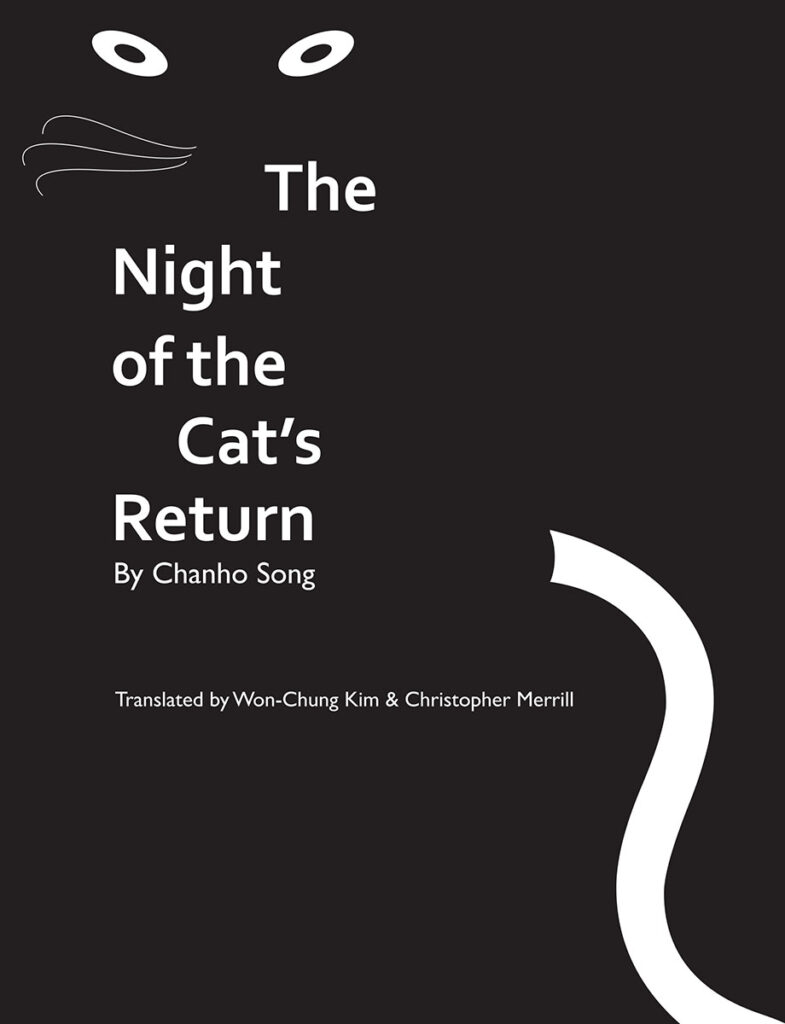
The Night of the Cat’s Return
By Chanho Song
Translated from the Korean by Won-Chung Kim and Christopher Merrill
The poems of Chanho Song subvert anthropocentric views of the world, rendering the textures of daily life through the eyes of the inhabitants of the land of pygmies. Butterflies, cats, and flowers speak in their own voices, presenting readers with a new perspective on their lives—and on nature. But the fairy tale-like world painted by Song is not the innocent one of a child unacquainted with the harsher realities of experience. Rather, it is what awaits explorers of the fallen language. Song invokes the state of regained innocence celebrated by William Blake, inviting us to engage in a dialogue with what the ancient Chinese called the ten thousand things; his poems demonstrate how to live harmoniously with nature.
The abstract ideas of Song’s early poems have given way to purer expressions of emotion: we see a movement from the rectangular memory of death into the nature of circular life, from the prison of language to the vibrancy of the thing itself, from skepticism to the dialogical imagination. He does not worship nature as a mysterious force but sees it as something beyond human understanding. He maintains an anarchistic attitude toward our anthropocentric ideology, portraying through personification a world different from the one in which humans take center stage. Song erases the boundary between humanity and nature, creating in his poetry a world that is at once familiar and strange. As he writes in “Rose Moss,” we must transform ourselves in order to appreciate his poems:
This book concerns the story of the land of the pygmies.
You should crouch down to read it.
The only boat making landfall is a discarded shoe.
The mirror in a shard of glass is the biggest lake around.
Song urges us to attend different schools, including those of the mountain dove and the cat. There, freed from the dizzying speed of civilization, we may sit down in a yarn basket and taste the cat’s philosophy while drinking pine-fragrance tea. Or we can go to the school of the goats, remove the artificial clothes of culture, and learn how to recover our lost wild power.
In Korean and English on facing pages.
ISBN: 9780982746660 / 131 pages / paperback / $9.95 / cover design: Justin Angeles
This book was made possible by a generous grant from the Literary Translation Institute of Korea
Copyright © 2021 Autumn Hill Books – All Rights Reserved.